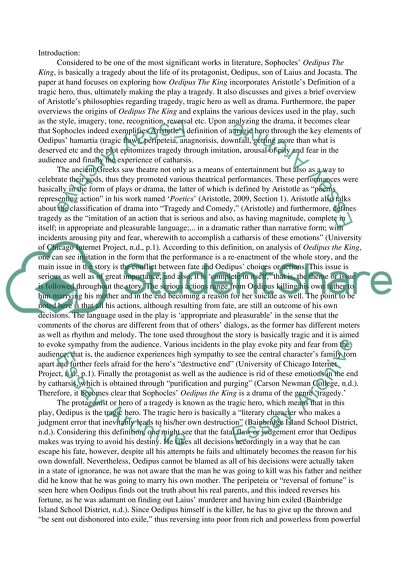Cite this document
(“How Sophocles' Oedipus exemplifies Aristotle's definition of a tragic Research Paper”, n.d.)
Retrieved from https://studentshare.org/philosophy/1486652-how-sophoclesyie-oedipus-exemplifies-or-refutes
Retrieved from https://studentshare.org/philosophy/1486652-how-sophoclesyie-oedipus-exemplifies-or-refutes
(How Sophocles' Oedipus Exemplifies Aristotle'S Definition of a Tragic Research Paper)
https://studentshare.org/philosophy/1486652-how-sophoclesyie-oedipus-exemplifies-or-refutes.
https://studentshare.org/philosophy/1486652-how-sophoclesyie-oedipus-exemplifies-or-refutes.
“How Sophocles' Oedipus Exemplifies Aristotle'S Definition of a Tragic Research Paper”, n.d. https://studentshare.org/philosophy/1486652-how-sophoclesyie-oedipus-exemplifies-or-refutes.


